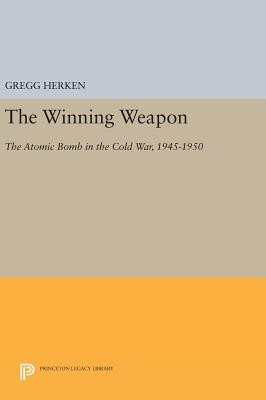
- We will send in 10–14 business days.
- Author: Gregg Herken
- Publisher: Princeton University Press
- ISBN-10: 0691635935
- ISBN-13: 9780691635934
- Format: 17.8 x 25.4 x 2.5 cm, kieti viršeliai
- Language: English
- SAVE -10% with code: EXTRA
Reviews
Description
This book makes clear how, and why, after World War II American diplomats tried to make the atom bomb a winning weapon," an absolute advantage in negotiations with the Soviet Union. But this policy failed utterly in the 1948 Berlin crisis, and at home the State Department opposed those scientists who advocated international cooperation on nuclear matters.
Originally published in 1988. The Princeton Legacy Library uses the latest print-on-demand technology to again make available previously out-of-print books from the distinguished backlist of Princeton University Press. These editions preserve the original texts of these important books while presenting them in durable paperback and hardcover editions. The goal of the Princeton Legacy Library is to vastly increase access to the rich scholarly heritage found in the thousands of books published by Princeton University Press since its founding in 1905.EXTRA 10 % discount with code: EXTRA
The promotion ends in 21d.05:45:25
The discount code is valid when purchasing from 10 €. Discounts do not stack.
- Author: Gregg Herken
- Publisher: Princeton University Press
- ISBN-10: 0691635935
- ISBN-13: 9780691635934
- Format: 17.8 x 25.4 x 2.5 cm, kieti viršeliai
- Language: English English
This book makes clear how, and why, after World War II American diplomats tried to make the atom bomb a winning weapon," an absolute advantage in negotiations with the Soviet Union. But this policy failed utterly in the 1948 Berlin crisis, and at home the State Department opposed those scientists who advocated international cooperation on nuclear matters.
Originally published in 1988. The Princeton Legacy Library uses the latest print-on-demand technology to again make available previously out-of-print books from the distinguished backlist of Princeton University Press. These editions preserve the original texts of these important books while presenting them in durable paperback and hardcover editions. The goal of the Princeton Legacy Library is to vastly increase access to the rich scholarly heritage found in the thousands of books published by Princeton University Press since its founding in 1905.

Reviews